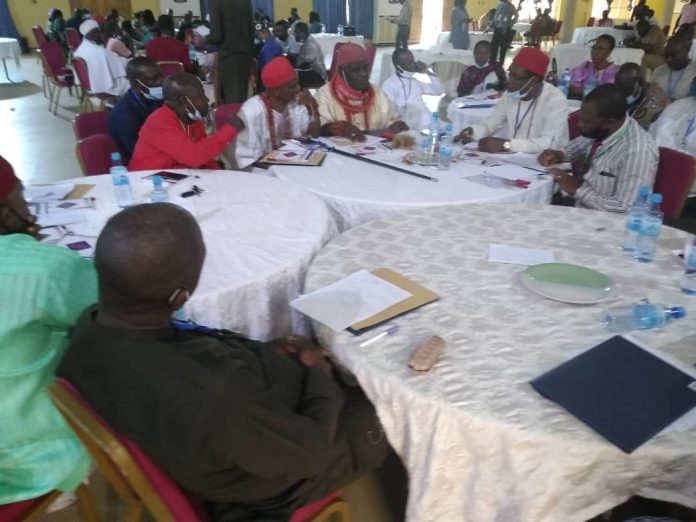The Director General of NOSDRA, Mr Idris Musa, performed the function at a One-Day Stakeholders Forum, with the theme: “the Danger of Oil Pipeline Vandalism and the Resultant Environmental Pollution” held on Thursday in Asaba.
Represented by Mrs. Christiana Okunubi, Director, Planning, Policy Analysis and Research, NOSDRA, Musa, said that there was a dire need to avert dangers associated with oil spillage to save the environment in the Niger Delta.
He noted that the pilot scheme of the Disaster Risk Reduction (DRR) Plan had been carried out in some communities in Bayelsa, Rivers, Akwa Ibom, Ondo and Abia states.
According to NOSDRA boss, Niger Delta is confronted with myriad of environmental problems threatening the supportive ecosystem and indeed the livelihood of her people.
“One of such threats is the incidence of oil spillages caused by oil pipeline vandalism.
“Thus, the compelling need to organise town hall meetings to create awareness on the dangers of pipeline vandalism in the region”.
He noted that there was a compelling need for roles and responsibilities of all stakeholders to clearly identified and harmonised.
“The DRR plan was developed by the agency to create and sustain an interface with stakeholders that hitherto have not been effectively engaged in the efforts to curb pipeline vandalism.
“While it is true that crude oil is spilled into the environment due to equipment failure, pipeline vandalism by unscrupulous elements also contributes largely to the menace which consequences include adverse socio- economic, health and environmental conditions.
“Hence, the emphases on DRR plan will be a community-driven, community implemented, community-monitored and community- evaluated project.
“The DRR plan is expected to be replicated in all oil producing states and transit states,” Musa said.
On his part, Mr Chris Onogba, Delta Commissioner for Environment, represented by Mr Precious Anuku, director in the ministry, said that theme of the forum was apt in its view to program solution to oil pipeline vandalism in the region.
He said that there was no doubt that the incidences of oil pipeline vandalism had impacted negatively to the environment and economic development of the country and the state.
“You will agree that pipeline vandalism has forced displacements, loss of life, livelihoods and properties, damage to aquatic life, ecosystem and biodiversity.
“Though, there is enough legislation, model, and approaches to detect and respond to oil will in Nigeria but results to stop spills from third party interferences have been less impressive.
“The stakeholders forum will therefore seek to offer a holistic and coordinated involvement of several related institutions and entities to brainstorm and interact in order to ensure an end to the vandalization of the oil pipelines,” Onogba said.
The commissioner enjoined the community leaders, youths, International Oil Companies (IOCs), and all other stakeholders to own and agree on plans to protect the environment from oil spillages.
In their separate reactions, the royal father and monarchs; HRM Dr, Matthew Egbi, Okobaro of Ughievwen, and HRM, Obi Kenneth Ezegbunem of Nsukwa, berated youths for taken to pipeline vandalisation in the oil bearing communities on account of its implication.
They urged that setting up of standing committees in all oil bearing communities to monitor and ensure safety and protection of the facilities and the environment from the dangers associated with oil spillages which included death from fire.
Also that government should encourage community policing to protect facilities as well as empower traditional rulers to supervise and oversee the activities in their domain to ensure peace.
That government should provide jobs for youths to discourage them from vandalising the pipelines among other issues.
Highpoint of the occasion was a short dance drama to demonstrate the effect of oil spillages and the need to protect the environment.
There was also a break out sections of stakeholders to faction ways of interventions to forestall future oil spillages in the Niger Delta region.
The sections deliberated on the roles of government, communities and oil companies in tackling oil pipeline vandalism and environmental pollution in the region.
No fewer than 20 communities from oil bearing areas were in attendance.

















